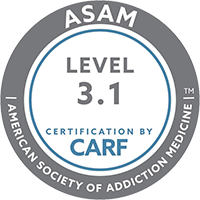
June 27th marks National Post-Traumatic Stress Disorder (PTSD) Awareness Day, a day set aside to shine a light on the often silent and invisible wounds carried by millions of people, many of whom are also battling substance use disorders. At Addiction Recovery Care (ARC), we recognize the critical connection between trauma and addiction, and we believe that true healing begins when both are treated with equal compassion, understanding, and support.
Trauma Often Comes Before Addiction
Behind many stories of substance misuse is an untold story of trauma.
PTSD is a mental health condition that can develop after experiencing or witnessing a life-threatening event, such as combat, abuse, serious accidents, or the sudden loss of a loved one. However, trauma isn’t always dramatic. It can also be the result of chronic stress, neglect, or growing up in a chaotic or unsafe environment. When trauma is left untreated, many turn to drugs or alcohol as a way to numb the pain, quiet the memories, or escape overwhelming emotions.
While not everyone who experiences trauma will develop PTSD, the impact is still widespread, and its connection to addiction is impossible to ignore.
The statistics paint a clear and urgent picture.
According to the National Center for PTSD:
- About 6% of U.S. adults will experience PTSD at some point in their lives.
- Each year, roughly 5% of the adult population, or 13 million Americans, are living with PTSD.
- Women are nearly twice as likely as men to develop PTSD.
- Nearly 40% of adults with PTSD also struggle with substance use disorders.
- 46% of people with lifetime PTSD meet the criteria for substance misuse.
- Among individuals living with both PTSD and alcohol use disorder, more than 40% have attempted suicide, a sobering reminder of how severe this dual diagnosis can be.
Recovery Requires a Trauma-Informed Approach
At ARC, we see firsthand how PTSD can complicate the recovery process. Unresolved trauma impacts emotional regulation, trust, communication, and even the ability to imagine a life beyond addiction. That’s why trauma-informed care is not optional; it’s essential.
Our programs are built on the understanding that healing from addiction often requires healing from trauma, too. We focus on treating the whole person — mind, body, spirit, and relationships, and that means creating a safe, supportive environment where clients can begin to unpack their pain, rediscover their worth, and rebuild their lives.
We also integrate clinical therapy, peer support, and faith-based services for those who want spiritual healing as part of their journey. Recovery is never one-size-fits-all, especially for those carrying the scars of trauma.
Honoring the Courage of Those in Recovery
On June 27th, we honor not only those who are living with PTSD but also the many individuals in recovery who are courageously confronting both addiction and deep emotional wounds. It takes tremendous strength to face the hurt, and even more to choose healing, again and again.
To every client who walks through our doors with a history of trauma, we see you. We believe in your resilience, and we’re walking beside you every step of the way.
You Are Not Alone
If you or someone you love is struggling with PTSD, substance use, or both, help is available. You are not weak. You are not broken. You are human, and healing is within reach.





